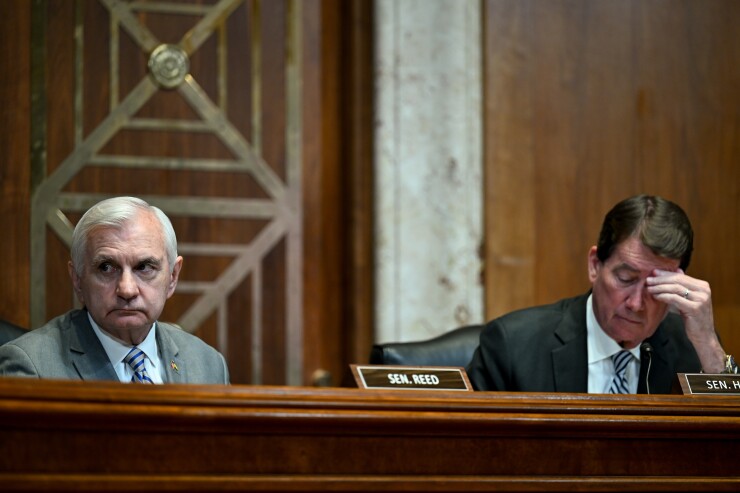
Advocates for military credit unions Tuesday urged top lawmakers on a senate appropriations subcommittee to restore funding for the Community Development Financial Institutions Fund, after the White House
In the
"We are alarmed by any efforts to zero out or sharply reduce CDFI Fund support," DCUC wrote. "As such cuts would have a devastating impact on military-serving credit unions and the communities they serve, undermining decades of progress in financial inclusion for our nation's heroes."
The CDFI Fund — established by the Riegle Community Development Regulatory Improvement Act of 1994 — supports financial institutions that serve economically distressed communities. The fund certifies financial institutions that focus on financial inclusion as CDFIs, among them banks, credit unions, nonprofit loan funds, microloan funds and venture capital funds.
CDFIs provide affordable lending and financial services to underserved communities, particularly in remote areas that may not have access to major banking institutions. Credit unions have often used CDFI grants to open branches in banking deserts, providing a "lifeline" to underserved groups, including junior enlisted service members, according to DCUC.
"Cutting the CDFI Fund would push military families back toward predatory lenders and stall decades of progress in financial inclusion," the group wrote. "These grants are not a handout — they are high-impact investments in national economic stability and family financial readiness."
President Trump targeted the CDFI Fund — along with a number of agencies deemed overly progressive — for budget cuts in a
In the first Trump administration, the president also
The order has stoked consternation with community lending advocates, a rare area of overt disagreement between the administration and the banking industry. Community banking trade group the Independent Community Bankers of America
In March, Virginia Democratic Senator Warner and Sen. Mike Crapo, R-Idaho — co-chairs of the Senate Community Development Finance Caucus and influential members of the Senate Banking Committee —
"Since 1994, the CDFI sector has grown to over 1,400 institutions, located in every state and territory in the nation — and leveraging at least $8 in private sector investment for every $1 in public funding received," the senators wrote in a statement. "As co-chairs of the Community Development Finance Caucus, a group which has grown to 28 members, 14 Democrats and 14 Republicans, we are proud to reaffirm our bipartisan commitment to support the CDFI Fund's mission."






